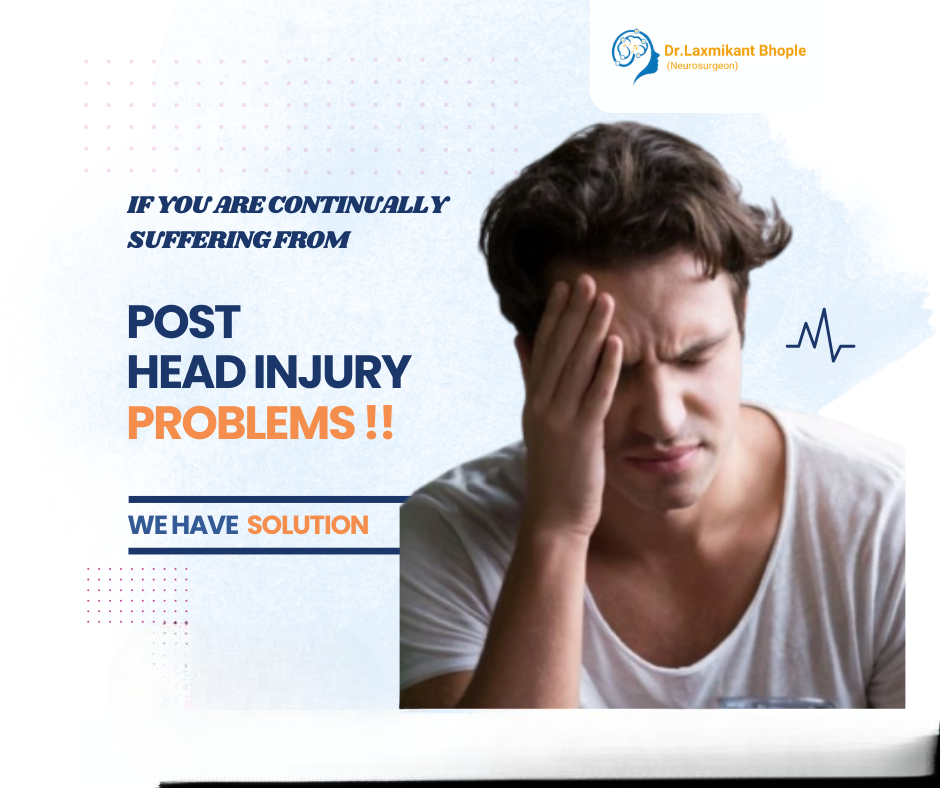Head injuries can have lasting effects on an individual’s health, impacting physical, cognitive, and emotional well-being. Whether mild or severe, a head injury requires prompt medical attention and proper management to prevent complications. If you or a loved one has suffered a head injury, seeking expert medical advice from a Neurosurgeon in Nanded is essential. In this blog, we will discuss common post-head injury issues, their management, and when to seek Head Injury Treatment in Nanded.
Understanding Head Injuries
A head injury refers to any trauma to the scalp, skull, or brain, often caused by accidents, falls, sports injuries, or violence. The severity ranges from mild concussions to severe traumatic brain injuries (TBI), which can lead to long-term complications.
Common Post-Head Injury Issues
1. Cognitive Impairments
Many individuals experience difficulties with memory, concentration, and decision-making after a head injury. Symptoms may include:
- Trouble focusing on tasks
- Difficulty remembering recent events
- Slowed thinking and problem-solving
- Confusion and disorientation
2. Headaches and Dizziness
Persistent headaches and dizziness are common post-injury symptoms. These can be due to swelling, nerve damage, or disrupted blood flow in the brain. Consulting a Neurosurgeon in Nanded can help determine the best treatment approach.
3. Emotional and Behavioral Changes
A head injury can impact mood and behavior, leading to:
- Irritability and mood swings
- Anxiety and depression
- Impulsiveness and aggression
- Social withdrawal
4. Sleep Disturbances
Many patients experience sleep-related issues, such as:
- Difficulty falling asleep
- Frequent waking up during the night
- Excessive daytime sleepiness
5. Sensory Problems
Some people report changes in vision, hearing, and sense of smell post-injury. Blurred vision, ringing in the ears, and sensitivity to light and sound are common complaints.
6. Motor Function Impairments
Loss of coordination, muscle weakness, and difficulty walking can result from severe head trauma. Physical therapy is often recommended for recovery.
How to Handle Post-Head Injury Issues
1. Seek Immediate Medical Attention
If a head injury occurs, it is crucial to seek Head Injury Treatment in Nanded immediately, especially if symptoms such as loss of consciousness, severe headaches, vomiting, or seizures appear.
2. Follow a Structured Recovery Plan
Recovery from a head injury requires a step-by-step approach:
- Rest and Gradual Activity Resumption: Avoid strenuous activities and allow the brain time to heal.
- Medical Follow-Ups: Regular visits to a Neurosurgeon in Nanded ensure that recovery is on track.
- Physical Therapy: Helps regain strength, balance, and coordination.
- Cognitive Rehabilitation: Therapy to improve memory, problem-solving, and focus.
3. Manage Symptoms Effectively
- For Headaches: Over-the-counter pain relievers or prescribed medications from a specialist.
- For Dizziness: Avoid sudden movements, stay hydrated, and practice balance exercises.
- For Emotional Changes: Therapy and counseling can help manage mood swings and anxiety.
4. Maintain a Healthy Lifestyle
- Nutritious Diet: Foods rich in antioxidants and omega-3 fatty acids promote brain health.
- Adequate Sleep: Ensure a consistent sleep routine for optimal brain recovery.
- Avoid Alcohol and Drugs: These substances can slow recovery and worsen symptoms.
5. Prevent Future Head Injuries
- Wear protective helmets while biking, riding, or playing contact sports.
- Use seat belts in vehicles to reduce the risk of traumatic injuries.
- Make homes and workplaces safer by removing hazards that may lead to falls.
When to Consult a Neurosurgeon in Nanded
If post-head injury symptoms persist or worsen, consulting a Neurosurgeon in Nanded is crucial. Seek medical attention if you experience:
- Worsening headaches or pressure in the head
- Frequent nausea or vomiting
- Seizures or convulsions
- Sudden weakness or loss of coordination
- Memory loss or speech difficulties
Conclusion
Post-head injury issues can significantly impact daily life, but with proper care and timely intervention, recovery is possible. Seeking expert Head Injury Treatment in Nanded ensures that complications are managed effectively and the best possible recovery outcomes are achieved. If you or someone you know is dealing with head injury-related symptoms, consulting a Neurosurgeon in Nanded is the best step toward proper diagnosis and treatment.
Taking a proactive approach to post-head injury care can make a significant difference in overall health and well-being. Prioritize recovery, follow medical advice, and take necessary precautions to prevent further complications.

